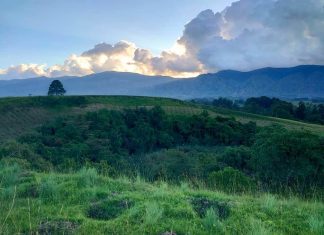Uganda had a problem of alcohol sachets before they were banned. When I was on a nature walk in Bigodi swamp near Kibale national park in 2018, I picked an empty plastic sachet of 100 ml that had contained vodka and I took a photo. The sachet seemed to have been lying around for some years as it had been partially covered by soil. On another location on the same trail as we were looking for bird and primate species that dwell in the wetland, I found another empty sachet of a different brand. By the end of the swamp walk, I had collected 8 alcohol sachets of different brands.
I then cropped the photos and created a collage photo frame. There was a visible litter by the roadside in Bigodi trading center and I realized that the area in and around the swamp and Kibale forest may be littered than you can imagine. The plastic material used to make these polythene papers isn’t biodegradable and contains chemicals that are harmful to the soil and the natural environment.
Litter clean-up, a solution to plastic pollution
According to a national Newspaper, plastic pollution is a challenging due to the fact that Ugandans use over 600 tons of plastic waste every day. No one knows the percentage of sachet alcohol waste, however. It seems that the problem of sachet alcohol waste was getting worse.
The manufacture and sale of sachet alcohol was banned in 2019, which I believe was a great move to protect the natural environment and also reduce alcohol abuse among the youth. However, no one might have ever picked up those alcohol sachets seen around Kibale national park and their presence in the soil given that they take a very long period of time to decompose prevents seeping of water into the soil and thus hinders growth of plant species which in turn affects wildlife.
There’s also pressure on wildlife emanating from a fast-growing human population through poaching, encroachment and habitat destruction.
Uganda’s rich and diverse wildlife including mountain gorillas, chimpanzees, mammal species and birds, is the biggest attraction for leisure travelers. It also generates revenue earned by government through the Uganda Wildlife Authority (UWA) national park system.
Protecting nature against plastic waste pollution therefore is almost like self-care habitats that benefits our well-being. It is a top priority especially among the local communities adjacent to the protected areas that directly share the benefits through the revenue sharing scheme.
Businesses in the tourism sector commit to conserve environment
There’s a growing environmental awareness and commitment to conservation among businesses in the tourism sector. For instance, in recent months, the staff members at Elephant Plains Lodge and Simba Safari Camp (part of Uganda Lodges Ltd) atop a hill overlooking Lake Kikorongo on the edge of Queen Elizabeth National Park have taken the initiative to pick up litter around Kikorongo village.
Kikorongo is famous for its equator monument where visitors make a stopover for photo shoots and has become a gateway for many tourists visiting the national park, which is renowned for its diverse wildlife and stunning landscapes including 95 mammal species and over 600 birds. The influx of visitors, however, has led to an increase in litter and waste, posing a threat to the local environment and wildlife.
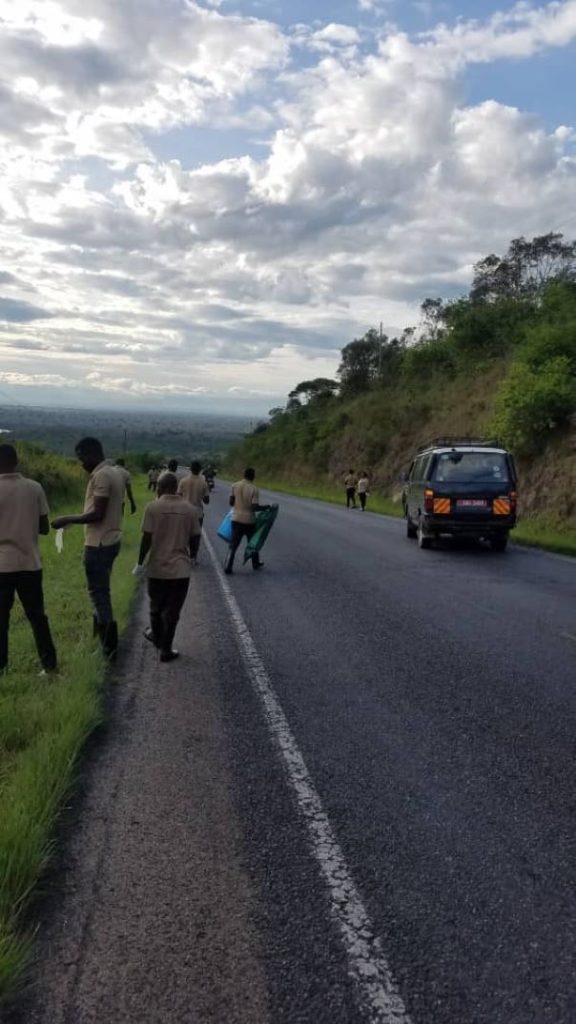
The litter clean-up activities
Recognizing the impact of litter on both the natural beauty and ecological health of the area, the lodge staff headed by their manager David Magyezi organized and spearheaded regular environmental clean-up activities, which have become a standard responsibility of everyone in the area. These efforts are often carried out during the low season month of March to May and October to November.
The clean-up activities involve not only picking up litter but also sorting and disposing off of waste properly. The staff members collect plastic bottles, polythene bags along the Mpondwe -Bwera road up to Kikorongo trading center. They work in teams to cover a distance of over 7 km in different areas and ensure that no part of the village or its surroundings is neglected.
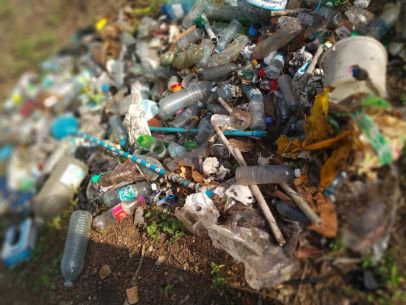
The clean-up initiative around Kikorongo serves as one of our models for sustainable tourism practices. It underscores the importance of community involvement in conservation of wildlife.
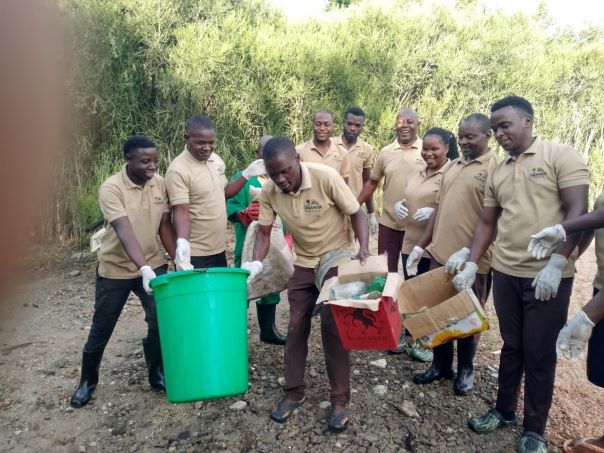
This initiative has a direct impact on the following:
- Protecting habitats: Removing litter helps to safeguard the natural habitats of the species, allowing them to thrive in their natural environment.
- Supporting sustainable tourism: Your initiative promotes responsible tourism practices, enhancing the overall experience for visitors while showcasing Uganda’s natural beauty.
- Conserving biodiversity: A clean environment supports the delicate balance of ecosystems, ensuring the coexistence of diverse flora and fauna that dwells in Queen Elizabeth National Park.
“Kikorongo village is cleaner today and they are leading by example” said Amos Wekesa, the proprietor of Uganda Lodges Ltd. Taking this as an example, we can play a pivotal role in environmental stewardship. By taking proactive steps to address litter and waste, the lodge staff is sowing a seed of inspiration that is going to shape the future of environmental stewardship among the future generations.
About us: At the Uganda Safari Travel Guide, we believe in responsible tourism. This is why we present in the first place travel places that follow the policies to preserve our natural habitats.
Written by Elly Tumwesiga / Editor in Chief / 25.6.2024


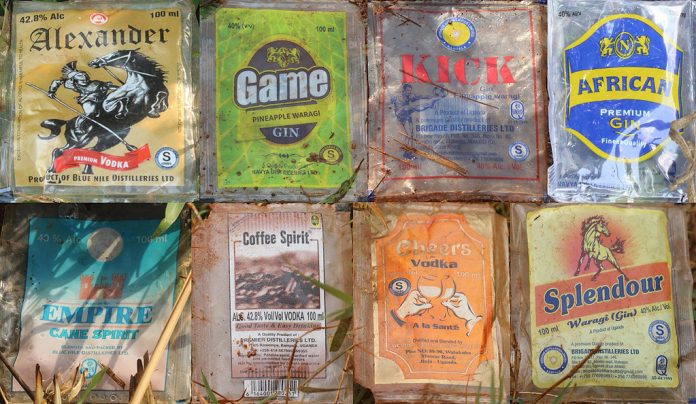
 Uganda Safari Travel Guide Advert
Uganda Safari Travel Guide Advert